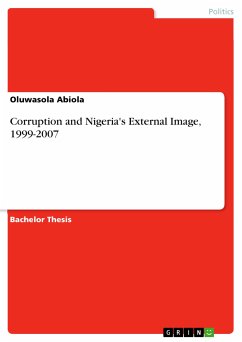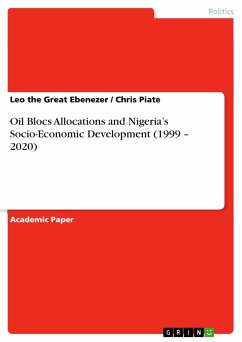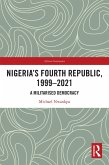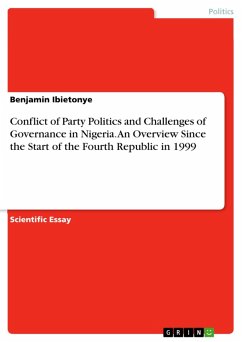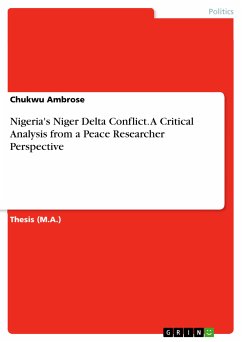Bachelor Thesis from the year 2019 in the subject Politics - Region: Africa, grade: 3.0, , course: International Relations, language: English, abstract: In Nigeria, corruption is one of the many unresolved problems that have robbed the nation of development. It remains a long-term major political and economic challenge for Nigeria. According to Alabi and Fashagba, Nigeria's search for enduring socio-economic, political and technological development as well as efficient and productive utilization of allocated have been undermined by pervasive corrupt practices in the polity. One cannot talk about Nigeria and neglect the reality of corruption in the country, and this is why the administration of Olusegun Obasanjo (1999 and 2007) gained unprecedented global attention on account of its unenviable record of corruption, especially in the political circles of the country. This is not to suggest that corruption in the country started with the Obasanjo administration in 1999, rather it is to emphasize how intensified corruption cases have been since the beginning of the Fourth Republic. The level of corruption in the country is very high, and its effects on the external image of the country is nothing closed to positive. The Nigerian state is a state dominated by the forces of corruption, especially the corrupt elites who has turned the resources of the Nigerian state into what is now popularly referred to as the "national cake" which they share as they like among themselves at the detriment of the masses, this further confirms the words of Ogbewere that corruption is a clog in the wheel of progress in Nigeria and has incessantly frustrated the realization of noble national goals, despite the enormous natural and human resources in Nigeria. The political elites ever since independence of the Nigerian state have not stopped to enrich their own personal pockets with the country's luxuries while hiding under the façade of fighting corruption in their respective political offices. This further explains why the Nigerian elites have so much interest in the political affairs of the state and in some way have turned it into a business venture rather than a serving avenue. The much reason Remi Chukwudi Okeke and Adeline Nnenna Idike made it known that indeed, in very simple and clear terms, the monumental enumerations indict the Nigerian elite in its generic connotations. It typifies the scenario of elites establishing an inverse relationship between the institutionalization of a state and its usefulness.
Dieser Download kann aus rechtlichen Gründen nur mit Rechnungsadresse in A, B, BG, CY, CZ, D, DK, EW, E, FIN, F, GR, HR, H, IRL, I, LT, L, LR, M, NL, PL, P, R, S, SLO, SK ausgeliefert werden.

